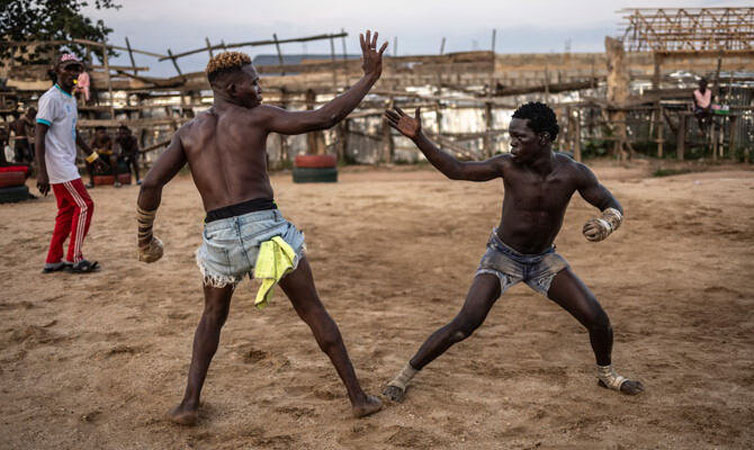
Pakistan, June 30 -- The initial punches in Dambe are thrown even before the boxers depart from their homes.
Fighters don charms and amulets, dye their fist or even score their arm with a razor, inserting traditional medicine before it scars over - all guaranteed to protect them in the ring or deliver a knock-out punch.
Alongside invocations from "mallams," or spiritual advisors, they become undefeatable—not only in Nigeria but also progressively across the globe.
The Dambe World Series began in Abuja, Nigeria’s capital, on Saturday as part of the ongoing development of a sport with origins dating back hundreds of years amongst West Africa's Hausa-speaking community.
“Rather than attempting to westernize it or transform it into something different, our aim is to professionalize it,” stated Maxwell Kalu, who founded the West African Fighting Championship, the organization behind the tournament.
Simultaneously, an important objective is also "to open up opportunities for individuals to compete in Nigeria."
Organized at the site of the national stadium and streamed via DAZN, a British sports broadcasting platform, this event significantly deviates from the social custom reportedly initiated by 10th-century Hausa butchers.
"This achievement is significant; I’m extremely pleased,” stated Abdullahi “Coronavirus” Ali, a 20-year-old fighter with years of experience from his childhood days. “The crowd is expanding daily.”
As the boxer known for his fierce strikes spoke with AFP, two amateur fighters showcased their skills in an exhibition bout behind him at a pre-tournament event in Dei Dei, a lower-middle-income suburb of Abuja.
Chickens foraged beneath the shaky wooden structures as cigarette smoke drifted over the spectators.
In Dambe, instead of using gloves, the fighters wrap one fist tightly with ropes – this serves as their striking limb. Their free hand extends outward, probing the gap between them and searching for an opportunity to grasp or block, readying itself as the combatant arm snaps forward like a coiled spring.
During the assault, one combatant stumbled and hit the ground - marking a "kill." The round came to an end.
Dambe may have appeared doomed to remain on the periphery in areas such as Dei Dei, while Abuja's upper class pushed aside everything obstructing their path towards constructing modern high-rises and extensive road networks.
However, gradually both the government and private organizations such as the WAFC have become increasingly interested in safeguarding and advancing the sport.
The rise of platforms like YouTube and Instagram has enabled Dambe to gain followers globally, as noted by a promoter who informed the BBC in 2017 that over half of his audience was based outside Nigeria.
The sport has similarly expanded domestically.
In 2018, a Dambe match held in the southern city of Lagos attracted viewers who were intrigued by the traditional sport of their fellow Northerners and eager to watch it being played in an official stadium.
At the beginning of this month, competitors from all over the continent gathered in the metropolis for the African Knockout Championship, which is a Western-inspired mixed martial arts competition.
However, Kalu imagines the reverse scenario: outsiders traveling to see a uniquely Nigerian style of combat.
Professionalization also offers the chance to implement safety protocols and consistent salaries into what would otherwise be an unregulated sport.
"If I marry, I will not permit my kids to follow suit," stated Usman Abubakar, 20, whose hand was stained dark brown from henna and who bore numerous decorative scars across his arms, reminiscing about an injury to his chest that forced him into seclusion for two years.
The competitors on Saturday aimed to secure their spot representing Nigeria in an anticipated multi-phase global tournament.
